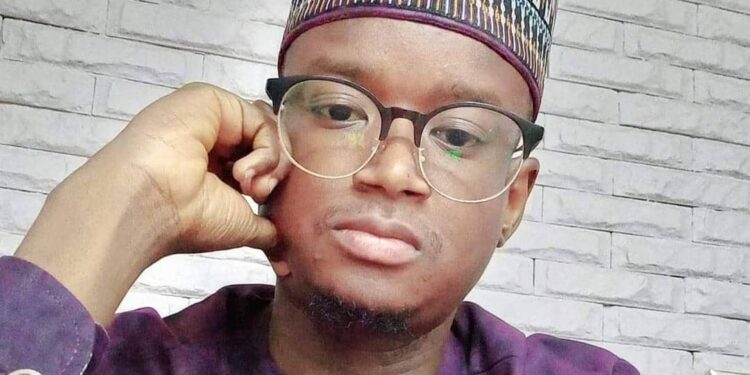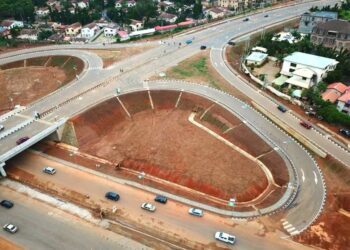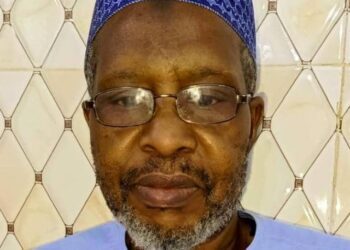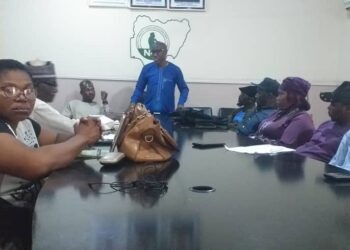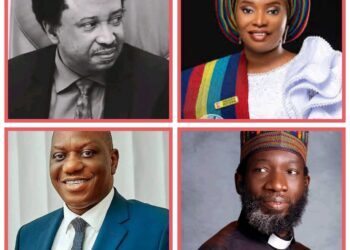By Yahya Salih Bayero
On the 1st of August, 2024, Nigerians from all walks of life embarked on a nationwide
protest tagged #EndBadGovernance in Nigeria. The protests, which were planned to last for
10 days attracted a significant number of participants from various states across the country.
It is noteworthy that the protests came after more than a month of prior warning and against a
backdrop of serious discouragement from various elite groups, most notably the clergy and
political officeholders. These elite groups cited various reasons why protesting at this time
was a bad idea; including a lack of leadership among the protesters and a lack of clear
demands from them. However, this did not deter the protests, and it may even have sparked a
serious backlash from the protesting groups, further fueling the protests.
Several days into the protests now, the issue of leadership remains pertinent and the
question still remains: What exactly are the protests aimed at achieving? On this, there hasn’t
been unity amongst the protesters; as some demand an end to bad governance, others demand
the resignation of the president, and others still, have been seen carrying Russian flags around
for reasons best known to them. Several social media videos show young protesters from the
north chanting “Mu soja muke so,” which translates to “We want a military rule.”
The alarming number of young people in Nigeria who were seen calling for military rule
indicates a lack of belief in democracy. Ironically, it was just a couple of months ago that The
president and his elite friends gathered in Abuja to celebrate 25 years of democracy and
eulogize each other for the role they played in its attainment. Sadly, the masses do not share
those sentiments, and who will blame them?
The conduct of the protests themselves are worrying, while we saw peaceful protests in some
states, there was violence in others. There was looting of private homes and businesses in
Kaduna and Kano as well as vandalization of public property, not to mention the clashes
between security forces and the protesters which led to the unfortunate loss of lives.
On the other hand, the protests have recorded some achievements; they have brought some
pertinent issues to the fore of the Nigerian media space and have inspired discussions and
debates. It has brought to light the level of frustration the Nigerian commoner is in due to the
multi-dimensional poverty and hunger caused largely by the policies of the current
administration. It has also showcased the level of illiteracy we are grappling with, because
some of the protesters’ actions can only be explained by illiteracy. This sadly is
predominantly in the north, where the protests have been the most violent.
The protests also shone light on the ever-widening gap between the ruling class and the
commoners. The total disregard for the government’s, clerics’, and traditional rulers’ prior
appeals to shelve the planned protests serves as evidence of this. The numerous calls seemed
to have no effect on the people. The commoner believes that the government is the cause of
all his problems, and nothing can persuade him otherwise. This unfortunately isn’t far from
the truth considering the level of neglect the critical sectors of education, healthcare, and
poverty alleviation have received over the years.
Education in particular needs to be given much attention to before things get out of hand. It is
reported that about 10.5 million children aged 6-11 years in Nigeria do not attend school.
This translates to 1 out of 5 of all the out of school children across the globe. This has been
allowed to fester for long that it begs the question; do the governments even care about
tackling this issue? Are they unaware of the potential consequences, which are already
manifesting in the form of Boko Haram, Banditry and other security challenges we are
currently grappling with?
In the 21st century, no nation can truly progress without maximizing the productivity of its
citizens, and Nigeria being Africa’s biggest population has citizens in abundance. Sadly
though, very few of which are productive enough to propel this country to where it belongs.
This is because of lack of proper education, even the educated ones are often found to be
unemployable, because the education available is not up to par with global standards of this
time and age.
There are also no adequate means of engaging the youth by governments. No jobs and no
enabling environments for ideas and businesses to thrive. We are sitting on a time bomb that
is well near its explosion, May God save us all when it does.
Then comes the presidents speech after three days of protests amidst a high level of suspense,
hope and expectations from Nigerians; and to say the speech was uninspiring is putting it
mildly. The president in his magnanimity acknowledged the sufferings of Nigerians and
reiterated why he believes the two major policies on Fuel Subsidy Removal and Floating of
the Naira had to be done.
He also went ahead to tell us the efforts being made to alleviate the sufferings of the Nigerian
masses. Notable of such efforts are the distribution of 20 trucks of rice to each state of the
federation (even though some governors have publicly denied receiving such rice), the
initiation of a student loan scheme, and a few other interventions including a total amount of 570 billion given to governors to cushion the effects of these policy decisions in their
respective states. All of these however did not deter the protesters, as the protests intensified
the very next day after the protests.
The president also urged the protesters to embrace dialogue, stating that his doors are always
open for meaningful dialogue. For me, this is the biggest takeaway from the speech, and the
protesters should endeavor to take on that offer.
The call for dialogue presents an opportunity to demand some tangible concessions from Mr.
President. However, a problem persists; once again, the question of leadership emerges: who
will advocate for the protesters and represent their true interests, given that the leaders of the
protests have largely remained in the background, particularly in northern Nigeria, where
there hasn’t been any high-profile individual or group that joined the protest or presented
himself as a leader.
While protests in the south-west, south-south, and north central regions have benefited from
strong leadership, resulting in clear demands and more organized and peaceful protests, this
is not the case in the north, where the protests have largely been violent and lacking in
coordination.
In order to take on the president’s offer for dialogue, it is important for the protesters,
especially from the north, to nominate people who can represent their interests. These
individuals should not currently be part of the government and should possess the necessary
knowledge, experience and integrity to make honest demands that will steer the northern
region and the country towards sustainable growth.
They should also know that whatever they demand will be worthless if they do not demand a
full investigation into the killings of people in Kaduna, Kano and Borno states by the Military
and the police forces during the protests. This should be a starting point because if they let
this slide, then human life will continue to be worthless in Nigeria. The sanctity of human
lives should come ahead of everything.
Other demands should focus on taking immediate measures to tackle the hunger and poverty
in the land, giving a few trucks of rice to governors won’t cut it; Nigeria is the poverty capital
of the world where about 70 million people are living in extreme poverty i.e below the
poverty line which is $2.15 per day. Let me give a context here, $2.15 was officially about
N903 before President Bola Ahmed Tinubu was sworn in. With the floating of the Naira, this same $2.15 is now roughly N3440. So automatically, anyone living on less than N3440 daily
is now below the poverty line. This will give you an impression to the magnitude of just this
one policy decision.
The point being, Nigerians are poorer than ever and there’s barely anything put in place by
the government to alleviate the situation, in the first place. This is what triggered the protests,
not politics. People are hungry and frustrated, and they demonstrated that.
I would appeal to the protesters especially from the north, to consider the opportunity of
dialogue a win, and they should come together and form a proper leadership structure as well
as outline clear demands from the government, and then take Mr Presidents offer of dialogue,
hopefully something tangible will come from it.
They should also persevere and remain relentless in their struggle for better lives, and know
that change doesn’t happen overnight, but it will eventually happen if the needed work is
done. They should also know that democracy, though not ideal is the best option we have, and
Nigeria is the only country we have. We CANNOT give up on Nigeria.
Yahya Salih Bayero write from kaduna.


